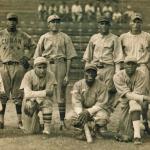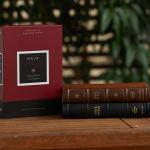As anyone on Twitter knows, public culture can be quick to attack, castigate and condemn. In search of the moral high ground, we rarely grant each other the benefit of the doubt. In her Class Day remarks at Harvard’s 2018 graduation, the Nigerian novelist Chimamanda Ngozi Adichie addressed the problem of this rush to judgment. In the face of what she called ‘a culture of “calling out”, a culture of outrage’, she asked students to ‘always remember context, and never disregard intent’. She could have been speaking as a historian.
History, as a discipline, turns away from two of the main ways of reading that have dominated the humanities for the past half-century. These methods have been productive, but perhaps they also bear some responsibility for today’s corrosive lack of generosity. The two approaches have different genealogies, but share a significant feature: at heart, they are adversarial.
One mode of reading, first described in 1965 by the French philosopher Paul Ricœur and known as ‘the hermeneutics of suspicion’, aims to uncover the hidden meaning or agenda of a text. Whether inspired by Karl Marx, Friedrich Nietzsche or Sigmund Freud, the reader interprets what happens on the surface as a symptom of something deeper and more dubious, from economic inequality to sexual anxiety. The reader’s task is to reject the face value of a work, and to plumb for a submerged truth.
A second form of interpretation, known as ‘deconstruction’, was developed in 1967 by the French philosopher Jacques Derrida. It aims to identify and reveal a text’s hidden contradictions – ambiguities and even aporias(unthinkable contradictions) that eluded the author. For example, Derrida detected a bias that favoured speech over writing in many influential philosophical texts of the Western tradition, from Plato to Jean-Jacques Rousseau. The fact that written texts could privilege the immediacy and truth of speech was a paradox that revealed unarticulated metaphysical commitments at the heart of Western philosophy.
Both of these ways of reading pit reader against text. The reader’s goal becomes to uncover meanings or problems that the work does not explicitly express. In both cases, intelligence and moral probity are displayed at the expense of what’s been written. In the 20th century, these approaches empowered critics to detect and denounce the workings of power in all kinds of materials – not just the dreams that Freud interpreted, or the essays by Plato and Rousseau with which Derrida was most closely concerned.
They do, however, foster a prosecutorial attitude among academics and public intellectuals. As a colleague once told me: ‘I am always looking for the Freudian slip.’ He scours the writings of his peers to spot when they trip up and betray their problematic intellectual commitments. One poorly chosen phrase can sully an entire work.
Not surprisingly, these methods have fostered a rather paranoid atmosphere in modern academia. Mutual monitoring of lexical choices leads to anxiety, as an increasing number of words are placed on a ‘no fly’ list. One error is taken as the symptom of problematic thinking; it can spoil not just a whole book, but perhaps even the author’s entire oeuvre. This set of attitudes is not a world apart from the pile-ons that we witness on social media.
Does the lack of charity in public discourse – the quickness to judge, the aversion to context and intent – stem in part from what we might call the ‘adversarial’ humanities? These practices of interpretation are certainly on display in many classrooms, where students learn to exercise their moral and intellectual prowess by dismantling what they’ve read. For teachers, showing students how to take a text apart bestows authority; for students, learning to read like this can be electrifying.
Yet the study of history is different. History deals with the past – and the past is, as the British novelist L P Hartley wrote in 1953, ‘a foreign country’. By definition, historians deal with difference: with what is unlike the present, and with what rarely meets today’s moral standards.
The virtue of reading like a historian, then, is that critique or disavowal is not the primary goal. On the contrary, reading historically provides something more destabilising: it requires the historian to put her own values in parentheses.















